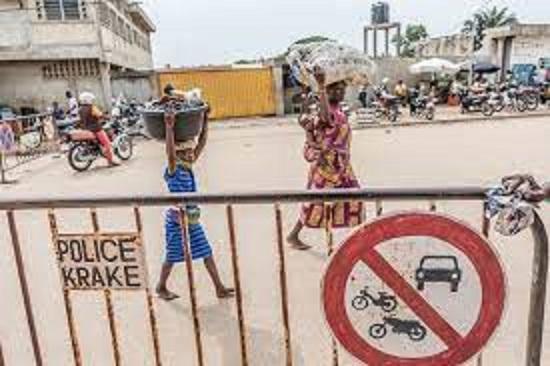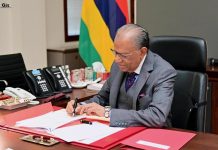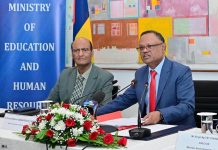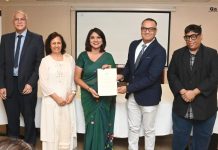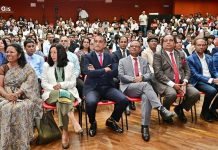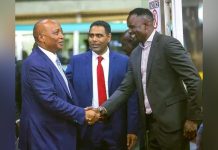Africa-Press – Mauritius. What are the major factors of the African wind energy market?
Many countries, from North to South, from East to West, have put in place development programmes for access to renewable energy solutions.
There is a strong will and ambition to give the sector a significant share beyond 20-50% in the energy mix of their country within the next 20 to 30 years.
Energy partnerships in Africa are increasingly being given to the private sector, which can only boost economic growth. In fact, more than 20 years ago, we were the first manufacturer to provide wind energy on the continent.
Today, with an installed capacity of more than 3.2GW, in countries such as South Africa, Egypt, Kenya, Mauritania, Mauritius, Morocco, Tunisia, and Algeria, we have more than 55% market share on the continent.
We are making significant efforts with experienced teams to help the continent accelerate its economic growth in a sustainable manner. The aim is to provide access to clean electricity to a growing number of Africans but also, where possible, to achieve optimal industrial integration.
Why and how do you aim to further develop the use of renewable energy across the continent?
Wind energy has the potential to play an important role in powering Africa’s growth, including job creation and expanding its industrial sector.
We believe that it is crucial for companies like ours to position themselves as major players enabling the energy transition in Africa. We need to encourage more public-private partnerships in order to propose and strengthen the necessary conditions for the development and access to renewable energies on the continent.
We can succeed only through collaboration with all public and private actors capable of building markets. That is why Siemens Gamesa seeks to share its expertise and judgement gained from more than 20 years of operating globally in 90 countries, and specifically on the continent as an active member in different national and international platforms.
For example, in chairing a task force within the Global Wind Energy Council or being active members of the RES4Africa Foundation and board members of local wind associations like SAWEA in South Africa. We all need to understand the different challenges we are facing today.
Beyond the integrated value chain that we offer to our customers, we also provide energy-efficient storage solutions to ensure a fully sustainable energy mix within the supply and demand ecosystem at a national level.
Are African countries equipped to produce renewable energy?
First, it is obvious that to be able to produce renewable energy, countries need either abundant sun or wind, if not both.
Luckily this is the case in many African regions. Then it will all depend on the effort states are putting in towards enabling the implementation of renewable energy programmes in their respective nations.
Many countries now have ambitious renewable energy plans in place such as Egypt, which aims to source 42% of the total generated electricity from renewable energy by 2035.
Another example is
Morocco’s ambition to have 52% renewable use by 2030. While South Africa plans to install over 10GW of wind power by 2030. In general, it is important to find the right committed partners.
For example, the new 59MW wind farm we will install in Djibouti represents Siemens Gamesa’s first in Africa with the leadership and participation of an African investor.
A consortium of four entities are leading its development: Africa Finance Corporation, the Dutch development bank FMO, Climate Investor One (Dutch investment funds in green energy in Africa, Asia and Latin America) and local company Great Horn Investment Holdings SAS.
The project is covered by MIGA, the World Bank’s Multilateral Investment Guarantee Agency. The electricity generated will be sold by the consortium to Electricité de Djibouti, the national power generation company, for a period of 25 years.
As mentioned, sun and wind are abundant renewable resources on the continent. As a result, the opportunities in the renewable energy sector are significant.
However, when considering particularities of Africa in terms of climate, geography and population growth, the challenge today for a stable evolution and growth in the sector, remains the optimisation of the investment framework.
It means we need better conditions and infrastructures in place, such as access to electricity networks, a sizeable pipeline of bankable projects and clear procurement processes so that the private sector can follow.
Thus, although the demand for renewable energy resources exists as well as a clear appetite for investment, the African market share at the global level remains relatively modest.
However, it is more important to observe the important evolution African markets are taking not only from a quantitative and qualitative perspective but also strategically, in order to assess the issue and better respond to it.
For example, despite high resource potential in Djibouti and opportunities for cross-border export, there are still 110,000 households in the country without access to power.
With a capacity of 59MW, the new wind farm we will complete next year will almost double the current installed power generation capacity in the country, all of which currently comes from fossil fuel sources.
In which African countries have you carried out projects in the last few years and which ones are still to come?
With an installed capacity of 1,253MW, Egypt represents not only the largest market, but also the one that is evolving most rapidly in terms of opportunities in Africa for our company.
We recently completed the first privately owned 262.5MW Ras Ghareb wind farm and launched the 250MW West Bakr Project with Lekela Power. While we have two projects amounting to 250MW under construction in South Africa, we have been following the market very closely since the announcement of the IRP2019 programme, which foresees 1.6GW of wind power capacity installed between 2020 and 2030.
In Morocco, we are constructing the 180MW Midelt wind farm, the first project of five planned in the integrated 850MW programme. In Mauritania, our team completed installing 39 turbines for our 102MW Boulenouar project. Finally, we are very proud to have entered a new market with the recent signing of a 59MW project in Djibouti.
The new installation, as part of an expanding national renewable energy development programme, will enable clean energy supply, decrease the cost of electricity and allow the 940,000 population of Djibouti and its key industries to strengthen its electrical independence and economic development.
For More News And Analysis About Mauritius Follow Africa-Press


